First Gen In Focus: Students Share Their Stories of Success
Offering broad access to a preeminent legal education and career in the law has been core to UCLA School of Law since the start, and the school has had remarkable success in its efforts to attract, educate and propel to success “first-gen” students — people who are the first in their families to earn a college degree. Today, about one in six of the school’s J.D. students is first-gen, a higher percentage than that reported by any top law school.
In recent years, UCLA Law launched a First Gen In initiative to promote personal and professional achievement for these students and to build a stronger community through career workshops, networking events and other innovative programs. A group of students simultaneously launched the First Generation Law Students Association to enrich and support each other academically, socially and professionally. Five current first-gen students agreed to share their thoughts on what brought them to UCLA Law and their post-graduation goals.
Simone Chung ’21
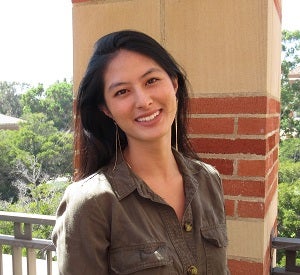 Before law school, I worked as a diversity advocate with the Asian American Bar Association of New York. For years, I was the youngest person in every room that I walked into, and I met hundreds of attorneys. Ninety percent of the advice that I got was to not go to law school. But I went anyway, and I haven’t regretted it for a second. Thanks to all the unsolicited advice, I walked in with a cynical, practical mindset toward getting a degree and pivoting my career. What I did not expect was that my world would not only get bigger in learning about corporate governance and commercial litigation, but that it would get deeper as I learned about the very underpinnings of our society.
Before law school, I worked as a diversity advocate with the Asian American Bar Association of New York. For years, I was the youngest person in every room that I walked into, and I met hundreds of attorneys. Ninety percent of the advice that I got was to not go to law school. But I went anyway, and I haven’t regretted it for a second. Thanks to all the unsolicited advice, I walked in with a cynical, practical mindset toward getting a degree and pivoting my career. What I did not expect was that my world would not only get bigger in learning about corporate governance and commercial litigation, but that it would get deeper as I learned about the very underpinnings of our society.
For example, I’ve never read anything like the court opinions written by the Supreme Court of the Navajo Nation, which explore pre-constitutional law and custom through implicit concepts in the Navajo language. In Navajo Nation v. Rodriguez, the Navajo Nation adopted Miranda rights, not because U.S. Supreme Court precedent was persuasive, but because the Fundamental Law of Diné dictates that police officers should treat all tribe members with dignity and respect.
I never expected that a torts case could make me tear up like it did when I read Portee v. Jaffee: “The knowledge that loved ones are safe and whole is the deepest wellspring of emotional welfare. … No loss is greater than the loss of a loved one, and no tragedy is more wrenching than the helpless apprehension of the death or serious injury of one whose very existence is a precious treasure. The law should find more than pity for one who is stricken by seeing that a loved one has been critically injured or killed.”
Law, justice and lived experiences are not the same things. But the relationship between of all of these is what makes me excited about coming to UCLA every morning. Everything that we learn speaks to what we owe each other in society.
Sandy Hudson ’22
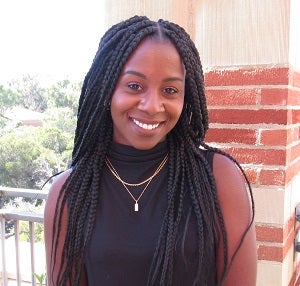 When I was an undergraduate, I never expected that law school would be an option. Besides having a flawed understanding of the role that a lawyer plays in the world, I was certain that the cost would be an insurmountable barrier. Still, I spent a lot of my time at the University of Toronto engaged in activist work: organizing to reduce tuition fees, fighting racism and engaging in initiatives for workers’ rights. These experiences led to a career in labor organizing and a passion for anti-racist activism.
When I was an undergraduate, I never expected that law school would be an option. Besides having a flawed understanding of the role that a lawyer plays in the world, I was certain that the cost would be an insurmountable barrier. Still, I spent a lot of my time at the University of Toronto engaged in activist work: organizing to reduce tuition fees, fighting racism and engaging in initiatives for workers’ rights. These experiences led to a career in labor organizing and a passion for anti-racist activism.
As founder of Canada’s first Black Lives Matter chapter, I was engaged with lawyers and legal proceedings that led me to start thinking differently about the role a lawyer plays in a community. The possibilities of what a lawyer could be began to expand in my mind. At my day job as a union representative, I would sit in labor negotiations, arbitrations and mediations, and our legal teams would often encourage me to consider a legal education. I also co-founded and ran the Black Legal Action Centre, a clinic in Ontario focused on impact litigation and direct services for the black community. Each of our exceptional staff lawyers encouraged me to seriously consider law school. Perhaps more importantly, they served as examples of the kind of lawyer I might be interested in becoming.
At the same time, I was studying for a master’s degree in social justice education, focusing on critical race and decolonization research. I would later find out that several of the landmark theorists and writers whom I would come to rely on to produce my thesis are located here — at UCLA School of Law — in the unparalleled Critical Race Studies program. It seemed obvious that if I were to study anywhere, it should be here.
My ultimate goal is to use my law degree to become a more effective advocate for my community. I hope to be able to effectively engage in law reform for the betterment of black communities on both sides of the Canada-U.S. border.
Jesus Diego ’21
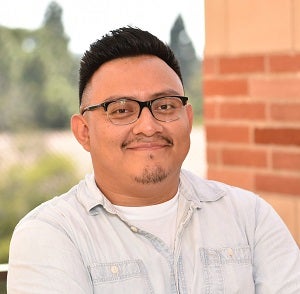 Growing up, I would have never imagined that I would be at one of the finest law schools in the world. I come from a family of immigrants. I grew up seeing my mother sacrifice so much — energy, time, money, happiness — for the benefit of others. As I got older and became more conscious of my family’s condition, I knew that I had to improve our situation. So, I enrolled in community college and began my academic journey.
Growing up, I would have never imagined that I would be at one of the finest law schools in the world. I come from a family of immigrants. I grew up seeing my mother sacrifice so much — energy, time, money, happiness — for the benefit of others. As I got older and became more conscious of my family’s condition, I knew that I had to improve our situation. So, I enrolled in community college and began my academic journey.
That was also around the time when I first started to picture myself as a lawyer. After a lot of work and sleepless nights, I was accepted to UCLA as an undergrad. It felt amazing. But I knew that I had to continue working hard, even as the mental picture of myself as a lawyer became a little more tangible. I participated in UCLA Law’s Law Fellows Program, which supports undergraduates from diverse backgrounds who are interested in law school, and gained insight into the legal community. I began to build relationships that would help make law school a reality. Before I knew it, I was studying for the LSAT — how fun. When I received a call telling me that I had been accepted to UCLA Law, I was ecstatic. However, I again reminded myself that there was still much work to be done.
I am happy to say that I made it through 1L — one of the most challenging yet rewarding experiences of my life. I have met some incredibly bright professors, made some wonderful friendships and read way too many cases.
As a lawyer, I hope, on a personal level, to do what I set out to do when I enrolled in community college — improve my family’s situation. On a professional level, I hope to become a successful business attorney who inspires other Latinx individuals from low-income backgrounds to pursue a legal career. But for now, I am enjoying the ride and am proud to be a part of UCLA Law.
Armound Ghoorchian ’20
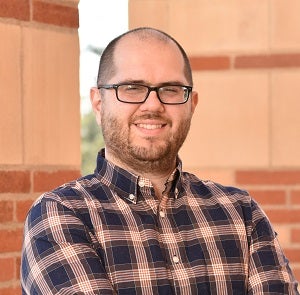 “Don’t do it,” an attorney told me when I asked him for advice about a legal career. It was great advice — for him. He seemed so miserable. But once I understood what the practice of law was, there was no doubt that this is where I belonged.
“Don’t do it,” an attorney told me when I asked him for advice about a legal career. It was great advice — for him. He seemed so miserable. But once I understood what the practice of law was, there was no doubt that this is where I belonged.
The truth is, law resonates with me because I grew up in a chaotic environment. I had five close friends in high school. One passed away due to drugs. One was killed. The odds always felt stacked against us. Of the remaining three, only one made it to higher education — me. The practice of law is the practice of advocacy for others — “We serve, period.” That is the appeal for me. Lawyers at least even the odds.
For a majority of my life, higher education was not a realistic option. Being an immigrant kid and a first-generation student is seemingly a fantastic combination for academic failure. That fear of failure is what motivated me to work as hard as I did. When I got accepted to UCLA Law, it was one of the most bittersweet moments of my life. It felt like we all had made it, but I was alone.
I have no lawyers in my family. My parents hold no high school degrees. I had no clue nor immediate help on how to start my legal career. Luckily for me, we have amazing first-gen UCLA Law alumni. When I reached out to them, they walked me through what 1L was going to be like and what to expect during on-campus interviews. They also had great outlines. I credit most of my law school success to them.
Sofia Pedroza ’21
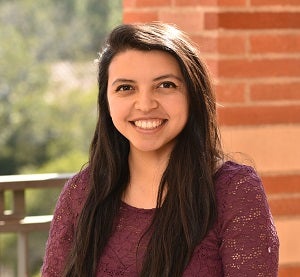 I am exactly the kind of student who would be tempted into law school. I’m curious. I consider myself a creative thinker. I care about social justice to the point that I am willing to dedicate my career to advocacy. Legal blogs and podcasts are fun for me. That’s all fine and dandy, but I’m in law school for my community — past, present and future.
I am exactly the kind of student who would be tempted into law school. I’m curious. I consider myself a creative thinker. I care about social justice to the point that I am willing to dedicate my career to advocacy. Legal blogs and podcasts are fun for me. That’s all fine and dandy, but I’m in law school for my community — past, present and future.
There’s a lot of pressure to succeed in law school when you come from various marginalized communities. My mom and dad were ecstatic that I finished high school and college. I stand with a chorus of first-generation students who know that their degrees aren’t just for us — they’re for our communities, as well. My degree is for my mother, grandmother, great grandmother and every ancestor who was denied adequate reproductive care because of their positionality. I knew I wanted to go to law school when my undergraduate and graduate research left me with many questions about law, race and reproductive justice.
I can’t imagine feeling fulfilled by law school if I had not engaged with critical race theory. CRT is a breath of fresh air to me as a woman of color and sociologist. It’s what drew me to UCLA Law in the first place. Sure, my classes can’t save me from the “casual” racism and sexism that pervades the ivory tower, but they can sharpen my analysis of how law, race, culture and power are intertwined. They can give me a starting point for thinking about solutions. I believe that any legal inquiry requires an understanding of the social context and implications. That’s why my central career goal is to finish law school, finish my Ph.D. and become a professor.
Given my student debt and the current academic job market, I should be terrified. I’m not, at least not most of the time. I’m pretty used to ignoring the odds. My odds of being accepted into a top-20 graduate program were slim. My odds of joining the 3% of Latinas that have their master’s degrees was also slim. Applying to UCLA law definitely felt like a shot in the dark. And yet, here I am. Now that I’m on my third degree, I’ve learned to focus less on traditional markers of success and more on building a community of support. My most valued experiences in law school have been the moments of solidarity with other friends and classmates who have known struggle. Hopefully together we can defy the odds.